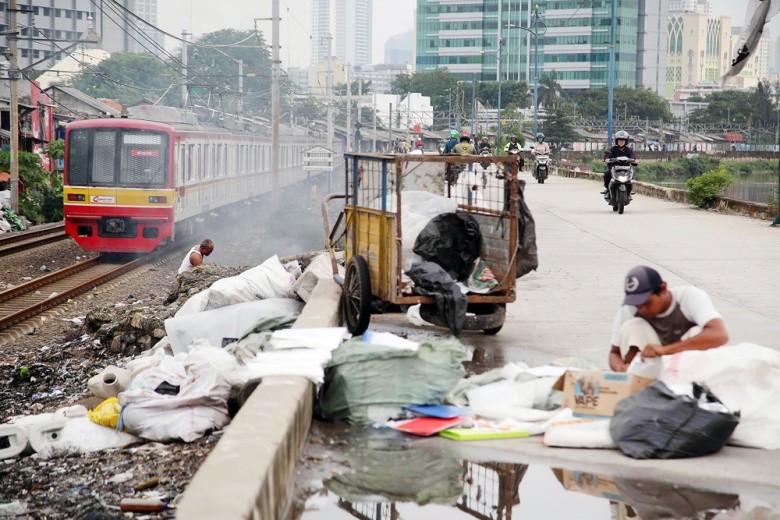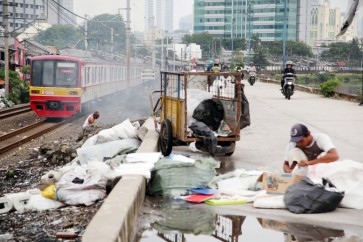Popular Reads
Top Results
Can't find what you're looking for?
View all search resultsPopular Reads
Top Results
Can't find what you're looking for?
View all search resultsCaveats in multidimensional poverty index
In the wake of the recognition that poverty is a multidimensional problem, Indonesia still favors the outdated measures of poverty based on income and consumption. The poverty data of Statistics Indonesia (BPS) might provide us with information on the main determinants of consumption-based poverty in the provinces. Yet, when it comes to the non-monetary dimensions of poverty, we remain clueless.
Change text size
Gift Premium Articles
to Anyone
I
n the wake of the recognition that poverty is a multidimensional problem, Indonesia still favors the outdated measures of poverty based on income and consumption. While the sensible course would be to make a persuasive argument to adopt the global Multidimensional Poverty Index (MPI), this is not necessary for the time being. Indonesia is not yet proficient at the MPI and adopting it will just turn progress into broad, widespread chaos.
The poverty data of Statistics Indonesia (BPS) might provide us with information on the main determinants of consumption-based poverty in the provinces. Yet, when it comes to the non-monetary dimensions of poverty, we remain clueless.
The MPI measures deprivation in three dimensions — health, education and living standards — and looks at whether these different needs are being met. If they are, it means that people have the capability to live lives free of burdens. Another way to look at it is that, when the MPI is satisfied, people have the capability to earn an income independently. This makes focusing on the MPI as an efficient path to eradicating poverty.
When policies concentrate on improving the level of consumption, this might ease conditions in the short term, but has an insignificant impact in the long term. On top of that, the consumption-based measure does not indicate how the people’s well-being progresses over time, and whether they have attained the capability to be on their own.
South Africa’s experience offers lessons for Indonesia. A developing country with a high poverty rate, South Africa has launched the South African MPI, which uses the Alkire-Foster method of measuring multidimensional poverty, also incorporates unemployment as a fourth dimension. Unemployment in a household was found to be the main determinant of poverty in South Africa and contributes 40 percent to the MPI in 2016, higher than the national unemployment rate.
Meanwhile, although still significant, the contribution of education to the MPI in South Africa is declining due to programs and policies such as no-fee schools, compulsory education and free basic services for poor households.
Having national MPI data allows the South African government to make a focused policy response to multidimensional poverty, such as intensifying job creation specifically for the poor, while maintaining policies that have been proven to advance progress without much work, such as the free education policy.


















